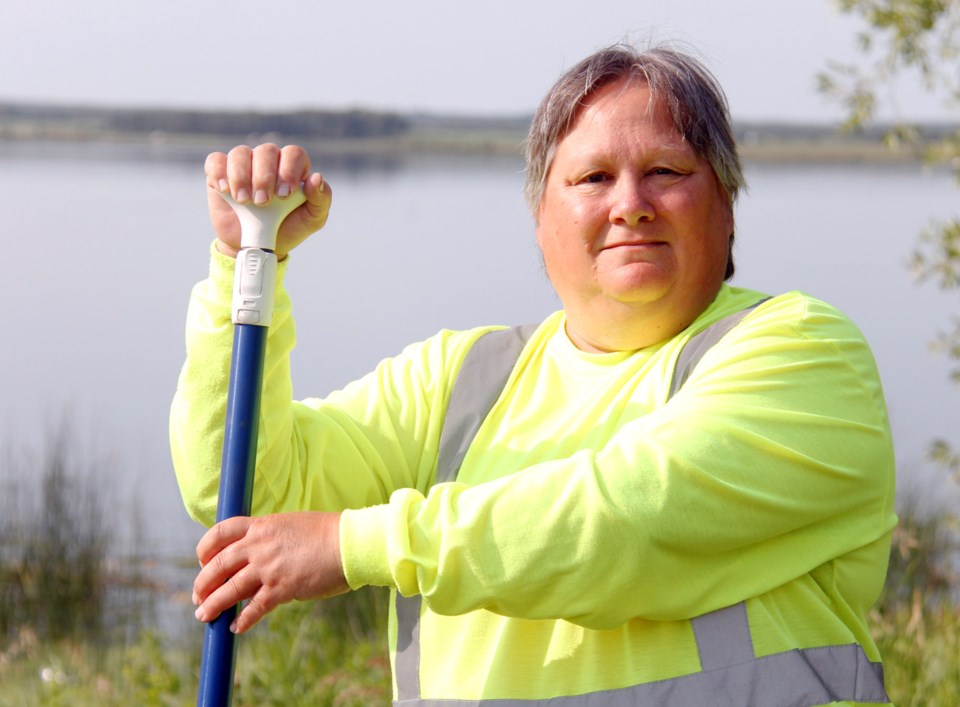Lise Langridge believes there are two sides to every story, and for nearly four-weeks she will be paddling her way through the truth as she takes part in the Canadian Canoe Pilgrimage.
Lise Langridge believes there are two sides to every story, and for nearly four-weeks she will be paddling her way through the truth as she takes part in the Canadian Canoe Pilgrimage.
Over the course of 850-kilometres of eastern Canada's bays and rivers, Langridge will be building friendships, knowledge, and reconciliation.
"During the last five-years Canada has been engaged in uncovering the tragic history of residential schools through the Truth and Reconciliation Commission (TRC) of Canada. The goal of the pilgrimage is to promote a deeper-intercultural dialogue and understanding. That's also part of my goal, is understanding and building that relationship," Langridge explained.
The Bonnyville woman and 29 other pilgrims from Indigenous, Jesuits, English, and French backgrounds, will be travelling the same expedition taken by missionary St. Jean de Brebeuf in the 1640s. The route has them starting in Midland, ON, and making their way to Montreal, QC.
The 25-day journey starts July 20, is in celebration of Canada's 150th, and serves as a response to the TRC. The TRC is a part of the Residential Schools Settlement Agreement, and was created in 2009 to uncover the history of residential schools in Canada.
"There are always two-sides to the story, and I want to know their side of the story. You're always hearing the Indigenous side of the story when it comes to residential schools, but we're not hearing the other side. I would like to hear that side of the story," expressed Langridge. "I want to get the full picture... then I can decide for myself."
Along their route they will be stopping amongst Indigenous communities to create dialogue.
The group will spend about eight hours per day in a canoe, camping amongst the trees and under stars, and even portaging from one point to another. This is something Langridge is looking forward to.
"It will give me a sense of what our early missionaries went through when they embarked here in Canada, and the suffering they endured when they came here," said Langridge. "It was much different than the European countries. To come to the wilderness of Canada was a much different experience. They had nothing, they brought what little they had with them which was usually stolen or traded."
As someone with an Indigenous heritage, Langridge is captivated by the opportunity to learn more about their culture and experience.
"I need to understand my own history, from both the Indigenous side and the French side," she said.
This won't be her first time branching out of Bonnyville. At the age of 16, she had already felt the wanderlust, travelling with the boy scouts to British Columbia, where they took part in a canoe trip down the Thompson River.
Later in life, she travelled to Mexico with the Jesuits. She wanted to learn more about Indigenous spirituality. She was left wondering how she could ever bring back her experience and share it with her friends and family.
She hopes that this trip will allow her to bring back further understanding, knowledge, and relationships.
"I'm looking forward to experiencing different Indigenous cultures and their perspective, because their perspective I'm sure is very different in the east than it is in the west," she said.
Langridge believes that because the western provinces were colonized later than the eastern ones, both parties experienced the same event differently.
"Our experiences are much different. They had 100-years start on us," she said.
